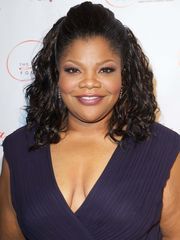
Recently, rapper Plies shared an opinion about his disdain for Black women wearing hair bonnets outside, sparking a heated debate on the web. The conversation reached a fever pitch when comedian-actress Monique weighed in on the controversy, urging her “babies” to respect themselves by not wearing bonnets in public.
“It took me a minute to say what I’m getting ready to say because I want to make sure I’m not saying it from a place of judgment and that I’m saying it from a place of love,” she said. “Some of y’all have given me the title of auntie, and I’m honored that y’all do that. But there are times that auntie has to talk to her babies and say some real sh-t.”
The former Charm School host said the amount of “young sisters” wearing head bonnets outside of their homes have left her shocked and feeling disappointed.
“I saw so many of our young sistas in head bonnets, scarves, slippers, pajamas, blankets wrapped around them, and this is how they’re showing up to the airport,” she explained in the 5-minute IGTV video. “I’ve been seeing it not just at the airport, I’ve been seeing it at the store, at the mall. I’ve been seeing sistas showing up in these bonnets and headscarves and slippers. And the question I have to you my sweet babies: when did we lose pride in representing ourselves?”
When a wave of backlash swiftly followed, she doubled-down on the comments saying the post she previously made “rubbed some people the wrong way” leading her to clarify the statements. Equating her remarks to the encouragement she’s received to lose weight, Monique said:
“For those babies who took offense to what I said, I’m ok with that. When they say ‘we will cancel your a--, they’ve tried that and I’m still here,” she continued. “I was told to get out my feelings about what was important {weight loss} and I’m glad I didn’t take that personally.”
She goes on to say that when women wear bonnets publicly, they “block their beauty.”
This critique sparked intense discourse among social media users around the constant critique of Black women’s hair, with many underscoring that the negative perceptions those with textured tresses regularly face have forced them to use protective tools like satin bonnets to preserve socially accepted styles, even while in public.
Joni Odum, CEO of Firstline Brands, the leading producer of satin bonnets and scarves, pointed out that regularly wearing bonnets and scarves serve a deeper purpose than people realize.
“It is important to use the right materials and products because textured hair can be dry and fragile. I know from hands-on experience that treating textured hair with TLC will help prevent dryness, hair breakage, and split ends. Hair maintenance items guard against excessive dryness, which can ultimately encourage healthier strands.”
Although the controversy may just seem like social media fodder, this topic hits a painful nerve that has plagued Black people, especially women, for centuries.
Throughout history, women’s tightly coiled and kinky hair has been deemed dirty, unkempt, unpresentable and unattractive by the mainstream. During the slave trade, European colonizers in the United States recognized the centrality of hair to Black cultures and subverted it.
Slave owners routinely shaved enslaved Africans’ hair in attempts to strip them of their cultural identity and humanity. Because of this, Black people turned to styles that appeared neater in appearance, but those looks came at a great cost, particularly for Black women.
For example, it has been well-documented that regularly straightening kinky and coily textured hair can cause significant damage over time. Even some protective styling like braids and locs can cause issues if not properly protected and moisturized regularly.
Satin bonnets and scarves that are worn at night and even during certain times of the day can serve as mechanisms to lock in scalp moisture, discourage manipulation and preserve hairline health. A 2018 International Journal of Trichology study says utilizing a protective barrier on the hair such as a satin scarf or bonnet significantly promotes scalp health and reduces oxidative stress, thus improving the look and feel of hair.
Overall, although some may perceive them as an enemy of respectability politics, satin bonnets serve a key role for many women of color’s hair health routine. And most importantly, when it comes to this subject it’s probably best to abide by the age-old adage: if you don’t have anything nice to say, don’t say anything at all.









